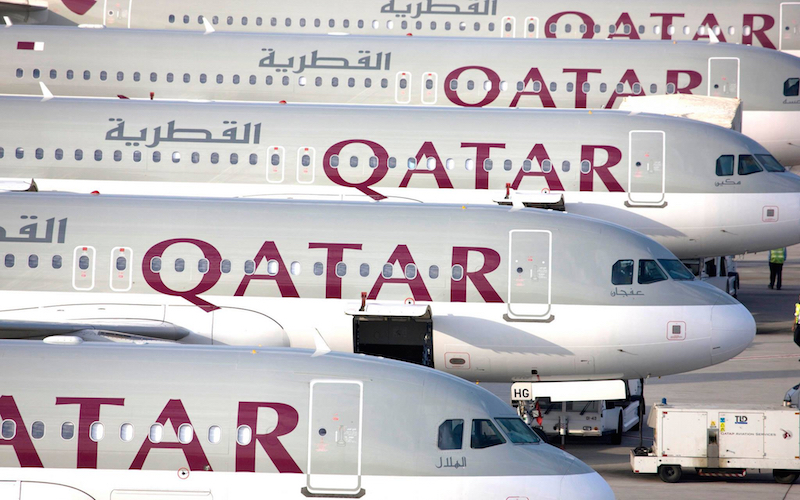
Flying Blind: Gulf Subsidies Debate Ignores Regional Realities
The ongoing debate over the fairness and transparency of state-owned enterprises (SOEs) in the Middle East intensified in March when three of America’s largest airlines entered the fray. In a 55 page white paper released to the public in April, American, Delta, and United attacked what they believed to be the unfair business practices of the Gulf’s most successful airlines – Qatar Airways, Emirates Airlines, and Eithad Airways.
The report accuses these state-owned airlines of rising to their current global prominence through significant political and financial intervention by their parent states. According to their American competitors, the Gulf’s “Big Three” have received a combined $40 billion in subsidies since 2000, including alleged benefits from reduced fuel prices that the airlines derived from their close proximity to the Middle East’s considerable oil resources.
The presidents of the Gulf airlines have fired back, claiming that their accusers are equally guilty of benefiting from government support and are attempting to stifle the competition posed by the newer and sleeker Gulf airlines.
This media blitz of accusation and counter accusation regarding the issue of subsidies has clouded the issue by treating the rise of Gulf aviation as a foregone conclusion.
This presumption has detracted from two key facts: a) SOEs around the world are generally less efficient and profitable than their privatized counterparts, and b) the Gulf aviation industry has traditionally been a difficult and competitive market. This critical context has been lost in the debate, and with it the importance of the skilled management and foresighted expansion strategies that allowed the Gulf’s Big Three to rise above the rest.
To attribute the success of these airlines solely to state support and geographic serendipity would be a considerable oversimplification. A quick look at the global airline industry reveals that state subsidies are no golden ticket for commercial success. On the contrary, when states exercise significant control over companies, corruption and financial losses are likely to follow. From Africa to South Asia to Western Europe, airlines with majority or complete state ownership have consistently provided a net loss to their government patrons. In one particularly egregious example, Sri Lankan Airlines recently lost billions of dollars through institutional corruption and the poor management skills of political appointees.
One need only look at the story of Kuwait Airlines for a Gulf example of this phenomenon. Although Kuwait possesses all of the geographic advantages and natural resource wealth of Qatar and the UAE, its national airline has consistently been “loss-making…in spite of the various direct and indirect subsidies made available.” While some of the blame for KA’s less than stellar history can be placed on the impact of the Iraqi invasion, more of the responsibility can be attributed to its “bloated and inefficient” corporate structure resulting from excessive state influence on company policy.
The unprofitability of Kuwait Airlines is just one example of the Gulf’s particularly cutthroat aviation sector. Interstate disputes and political instability have contributed to the decline or outright bankruptcy of several Gulf based carriers. Private airlines such as Wataniya and Bahrain Air, as well as the government owned RAK Airways, have sprung up in the region in the past decade only to find themselves quickly facing insolvency. The Gulf’s oldest state-owned airlines have fared little better. Gulf Airways, once the dominant carrier in the region, has lost much of its former influence. Saudia Airlines, the national carrier of regional hegemon Saudi Arabia, has failed to reach anything near the prominence of its counterparts in smaller states.
Although the American airlines are against the use of subsidies on principle, unprofitable SOEs like Sri Lankan Airlines or Kuwait Airways have not been censured for receiving state support. While the American airlines accuse the Gulf’s triumvirate of benefiting unfairly from their geographic location, other less successful GCC airlines such as Saudia and Gulf Air have inexplicably been exempted from the American lobbying offensive. It seems then that the primary grievance that the American legacy carriers have against the Big Three is not that they are subsidized – but that they are successful.

